Turkey to set up Syria 'security zone' after Trump call
Erdogan says he had 'quite positive' telephone conversation with Trump
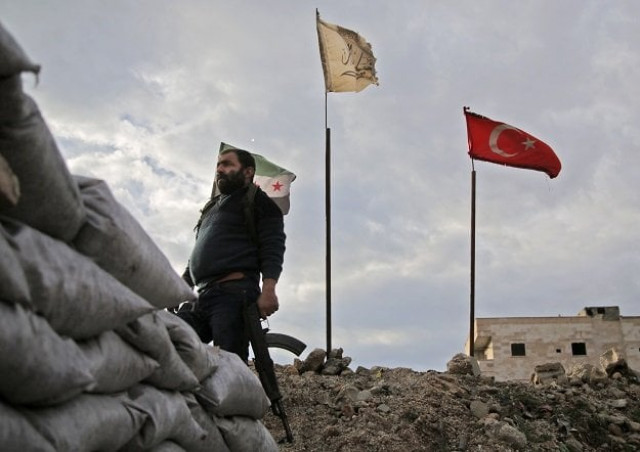
A fighter from Faylaq al Sham (Sham or Levant Legion), one of the factions of the Turkish-backed National Liberation Front (NLF) factions, is seen holding a Kalashnikov assault rifle as he stands in front of the flags of (L to R) the Syrian opposition, the faction, and Turkey, at a position in the village of Kiridiyah, about 30 kilometres west of the northern town of Manbij. PHOTO: AFP
Erdogan's comments came a day after he had a telephone conversation with Trump to ease tensions after the US leader threatened to 'devastate' the Turkish economy if Ankara attacks Kurdish forces in Syria.
Turkey has welcomed Washington's planned withdrawal of some 2,000 US troops from Syria but the future of US-backed Kurdish militia forces labelled terrorists by Ankara has poisoned ties between the Nato allies.
Erdogan said he had a 'quite positive' telephone conversation with Trump late on Monday where he reaffirmed that "a 30 kilometre security zone along the Syrian border... will be set up by
Damascus meanwhile denounced Erdogan's "language of occupation" in talking about a security zone.
"The statements made today by the Turkish president reaffirm that this regime... does not deal (with anyone) except in the language of occupation and aggression," state news agency SANA quoted a source at the Syrian foreign ministry as saying.
Trump, Erdogan discuss 'ongoing cooperation' in Syria
The Turkish army has launched two major operations in Syria dubbed 'Euphrates Shield' in 2016 and 'Olive Branch' in 2018 to combat Syrian Kurdish fighters as well as Islamic State.
But the last offensive sought to roll back gains by Syrian Kurdish fighters who have governed parts of northern Syria since 2012.
The deployment of Turkish troops and their proxy forces in areas of northwest Syria has drawn accusations by some critics of a Turkish military occupation.
"Comparing Turkey's presence in Syria with that of any other state or power is an insult to both history and our civilisation," Erdogan said.
Turkey is home to over three million Syrian refugees. Since early in the conflict, Ankara has called for a safe area backed up by a no-fly zone on its 900 kilometre border with Syria to protect civilians from air and ground attacks. But support for the proposal has waned.
The plan was mooted to Trump's predecessor Barack Obama, so that a safe structure could be provided for Syrian refugees on the condition that Washington provides logistics and air support, while Ankara supplies ground security, Erdogan said.
"Unfortunately Obama failed to take the necessary steps," he said, speaking to journalists after his parliamentary address. But after the discussion with Trump, Erdogan said that plan could be resurrected and the 20-mile "security zone" could be extended, if needed.
It could be created in cooperation with the US-backed international coalition fighting against IS, which Turkey is also a member of.
"We could create such a safe zone if coalition forces especially America provide logistical and financial support," Erdogan said.
"That would also entirely prevent an influx (of refugees)."
Turkey vows to continue fight against Kurdish militia after Trump threat
The Turkish leader however dismissed any presence of the Kurdish People's Protection Units (YPG) militia in that zone.
Erdogan's spokesman Ibrahim Kalin said the security zone would "be controlled by Turkey, with the deployment of Turkish military, intelligence activity and the involvement of the locals."
He said its modalities were being discussed with Washington, adding the Turkish army chief General Yasar Guler was due to meet on Wednesday with his US counterpart in Brussels.
US support for the YPG during the Syria conflict has been a major source of friction between Ankara and Washington. The US regards the YPG as an effective ground force in the fight against IS.
Ankara has however threatened to launch a cross-border operation to eradicate Syrian Kurdish fighters it sees as an offshoot of the outlawed Kurdistan Workers' Party (PKK).
The PKK, which has carried out a decades-long insurgency against Turkish forces, is blacklisted by Turkey as well as by the United States.
But there have been concerns in Washington that Kurdish groups are being abandoned to attacks in the future by the far more powerful Turkish military.
Erdogan on Tuesday said Trump's tweet "saddened me and my friends", but added that the two leaders reached an agreement "of historic importance" during Monday's phone call.
The Turkish president said he would visit Russia on January 23 for a meeting with President Vladimir Putin over the US troop pullout plan.

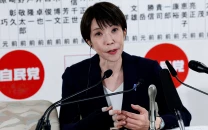
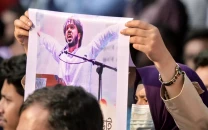
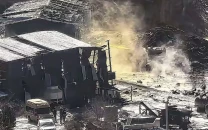
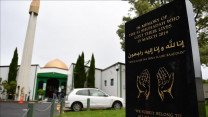

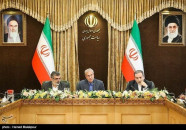












COMMENTS
Comments are moderated and generally will be posted if they are on-topic and not abusive.
For more information, please see our Comments FAQ